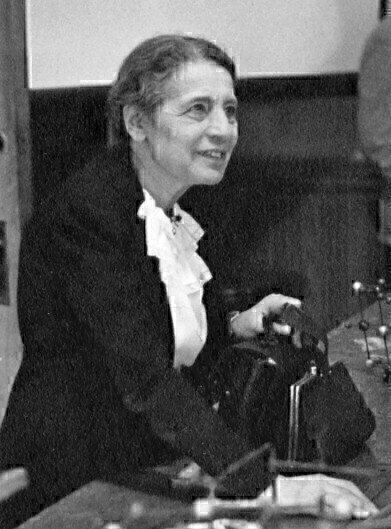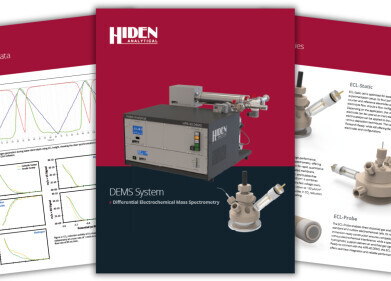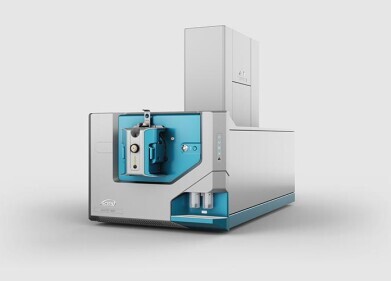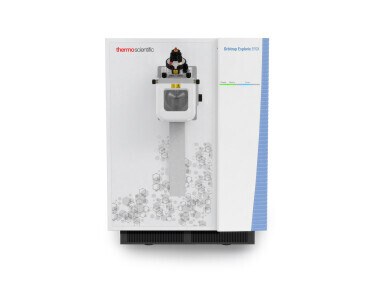Mass spectrometry & spectroscopy
Women in Physics - Lise Meitner
Oct 22 2018
Inspired by Dr Donna Strickland’s recent Nobel Prize for Physics win and spurred on by the controversial comments of Professor Alessandro Strumia, we’re dedicating this month’s Labmate series to the inspirational women who helped to transform the world of physics.
First of all, we’re going to take a look at the life and work of Lise Meitner…
Early life
Meitner was born in 1878 into a wealthy, cultured family in Vienna. Along with her 7 brothers and sisters, Lise was encouraged to think freely and independently by her parents.
Unlike her brothers, Meitner’s schooling ended at 14 and she couldn’t go on to attend grammar school. Instead, she stayed at home and continued to fuel her thirst for knowledge. Eventually, she asked her father if she could take a science degree at the University of Vienna – a difficult feat for a young woman at the time.
Before enrolling at the university, she completed a French teaching qualification, providing her with a suitable fall back. She then passed the entrance exam for a science degree in 1901.
In 1906, after having been taught by the brilliant Ludwig Boltzmann, Meitner graduated with a Ph.D. in physics. She wrote to Max Planck at the University of Berlin asking if she could attend his lectures for a semester, where women were not allowed to formally enrol.
Life in Berlin
Upon arrival in Berlin, Meitner found herself welcomed by the physics faculty, but not chemistry. It wasn’t until meeting Otto Hahn, a young scientist, that Lise found someone to study alongside. Meitner and Hahn an became great friends, working together in a small carpenter’s workshop.
Here work life continued to go from strength to strength, as she was nominated for the Nobel Prizes in Chemistry and Physics a total 10 times. But her time lecturing at the University of Berlin came to an abrupt end in 1933 when Hitler came into power and all those with Jewish ancestry were fired from their jobs. Due to her Austrian nationality, she was allowed to continue her research at the Kaiser Wilhelm Institute.
Nuclear Fission
In the 1930s, Ida Noddack proposed that neutron bombardment could cause uranium nuclei to break apart into lighter elements – essentially putting forward the concept of nuclear fission. Meitner and Hahn quickly jumped onto Noddack’s work and set about trying to prove her theory. However, the team quickly, and incorrectly, ruled nuclear fission as highly unlikely.
As Germany annexed Austria, Meitner was forced to flee Germany and travelled to Copenhagen before heading to work at the Nobel Institute for Physics in Stockholm. Whilst there, she and Hahn continued to work on nuclear fission, both separately and together.
In 1938, she wrote and published a paper announcing the existence of nuclear fission along with her nephew, Otto Frisch. They discovered that enough mass was converted to energy during nuclear fission to produce an enormous amount of energy.
Missing out on a Nobel Prize
In 1944, despite efforts from both Meitner and fellow scientist Niels Bohr, Otto Hahn was awarded the Nobel Prize in Chemistry for the discovery of nuclear fission. He had intentionally downplayed her role due to his fear of the dangers of associating his name with hers after she had fled Nazi Germany illegally.
Although Lise never received a Nobel Prize or credit for her lifelong work, she was honoured in a more apt way in 1997 when element 109 was named Meitnerium after her.
For more on the world of physics, be sure to check out our review of the 66th ASMS Conference on Mass Spectrometry and Allied Topics, or read the next post in our series on Maria Goeppert-Mayer.
Digital Edition
Lab Asia Dec 2025
December 2025
Chromatography Articles- Cutting-edge sample preparation tools help laboratories to stay ahead of the curveMass Spectrometry & Spectroscopy Articles- Unlocking the complexity of metabolomics: Pushi...
View all digital editions
Events
Jan 21 2026 Tokyo, Japan
Jan 28 2026 Tokyo, Japan
Jan 29 2026 New Delhi, India
Feb 07 2026 Boston, MA, USA
Asia Pharma Expo/Asia Lab Expo
Feb 12 2026 Dhaka, Bangladesh



















